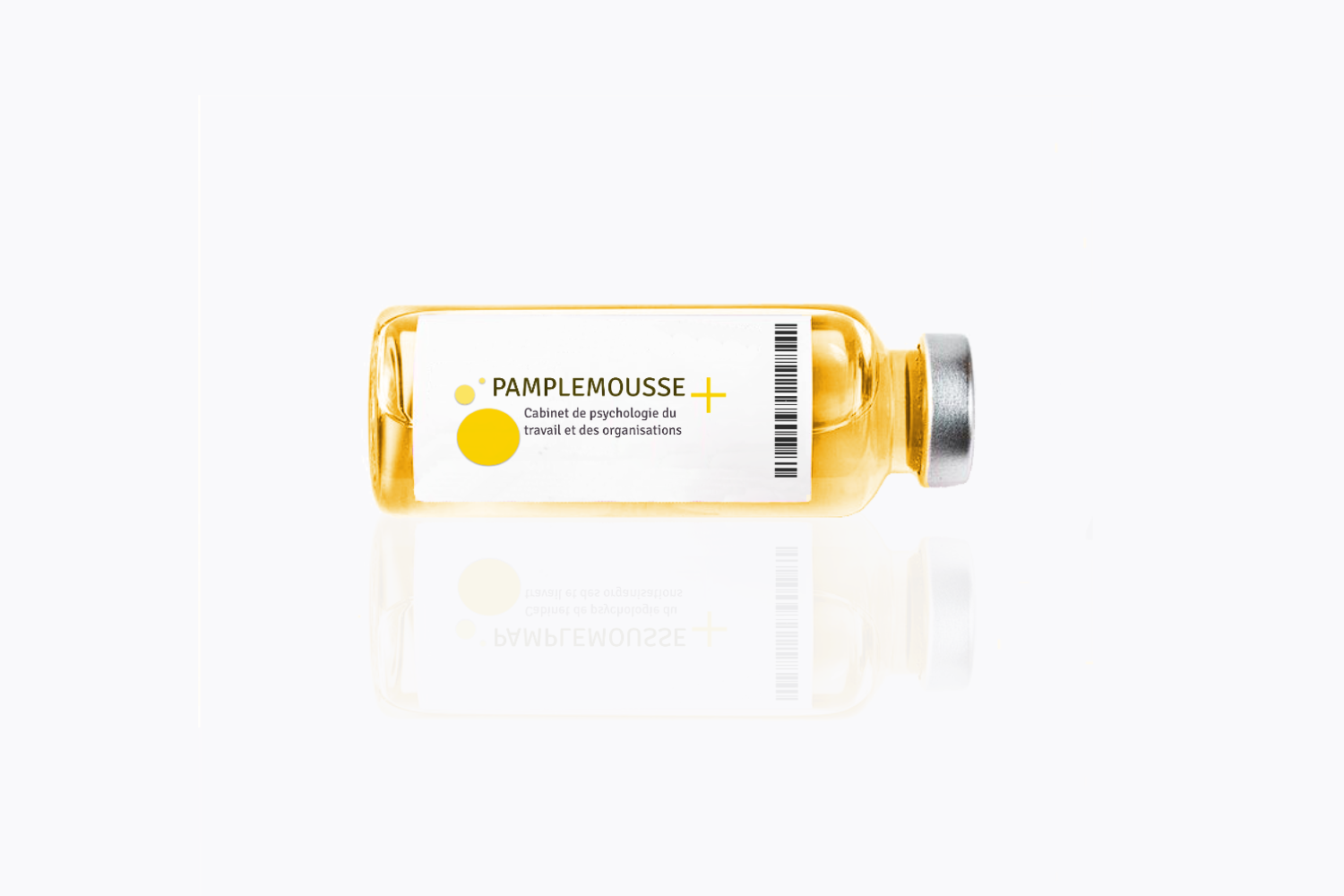Depuis mars 2020, Santé France a lancé l’enquête Coviprev afin de suivre les comportements de la population française vis-à-vis du Covid. L’enquête révèle en mars 2021 des chiffres alarmants concernant le bien-être psychologique des Français. 20% des Français souffrent d’un état dépressif, soit 10% de plus que le niveau habituel, qui reste constant depuis des années.
Following the example of Japan, which appointed on February 12, Tetsushi Sakamoto, as “Following a dramatic increase in the number of suicides, what solutions should France provide to a population facing a new and anxiety-provoking situation?
In order to have a pragmatic point of view on the situation, Feat-y went to meet Lise lenain from the firmpamplemousse, work psychologist. Interview
Feat-y: You are a work and organizational psychologist. Could you tell us more about your activity?
Lise Lenain: My job consists of intervening on an individual level in the context of problems linked to suffering at work, problems of professional reconversion, as well as on an organizational level. I have a pole of intervention in organization, thus in company in the field as well public as private where I intervene on the accompaniment to the change, on the installation of cell of psychological listening.
For instance, at the moment, I am working on the implementation of telecommuting, the digitalization of jobs, and on everything related to the prevention of what is called psycho-social risks, i.e. everything related to stress in the workplace, internal violence, harassment, pathogenic management, and everything related to external violence (customers, users). I also have a training pole in connection with all these themes, which are related to the quality of life at work in the broad sense of the term, including stress management, the impact of the crisis on work and the articulation of the spheres of life that may result. I intervene for all types of companies, many for communities, and the associative world.
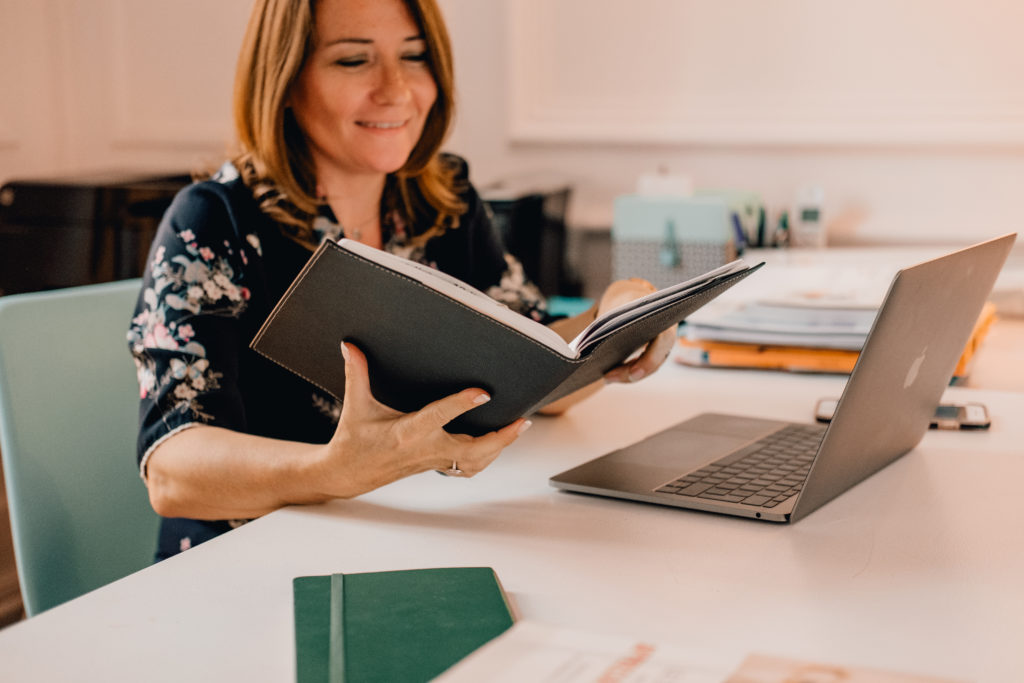
Feat-y: According to a 2018 capital survey, 70% of employees report having a tiring job, how does this impact psychological health?
Fatigue at work can be expressed in different ways, both physically and mentally. On the psychological level, it will be expressed by a greater irritability, a more deficient attention, an apprehension in front of long periods of concentration, a lesser efficiency. In the world of work, we observe an acceleration of the cycles of change without time for adaptation and recovery from the new forms of work. There is no more time for respite or for implementing what we have already experienced. Fatigue can be expressed as a result. The consequences will be: difficulty in falling asleep, waking up at night.
This is a deep societal trend, amplified by the health crisis. Inequalities have increased and companies have relied on proximity management.
Feat-y: Are you seeing new symptoms related to the pandemic
I don’t know if these are new symptoms, but I’m getting more and more people who used to be able to put on a brave face. People who would never have cracked. With a majority of men between 35 and 45 years old. In the kind of environment, where stress is perceived as positive, where also it is important to show mental strength. This type of profile is used to absorbing constraints but without the usual resources such as sports practice, being able to go out, the balance is no longer there. This results in severe psychological fractures, decompensation of the burn out type, which are revealed by the disappearance of the usual ressources
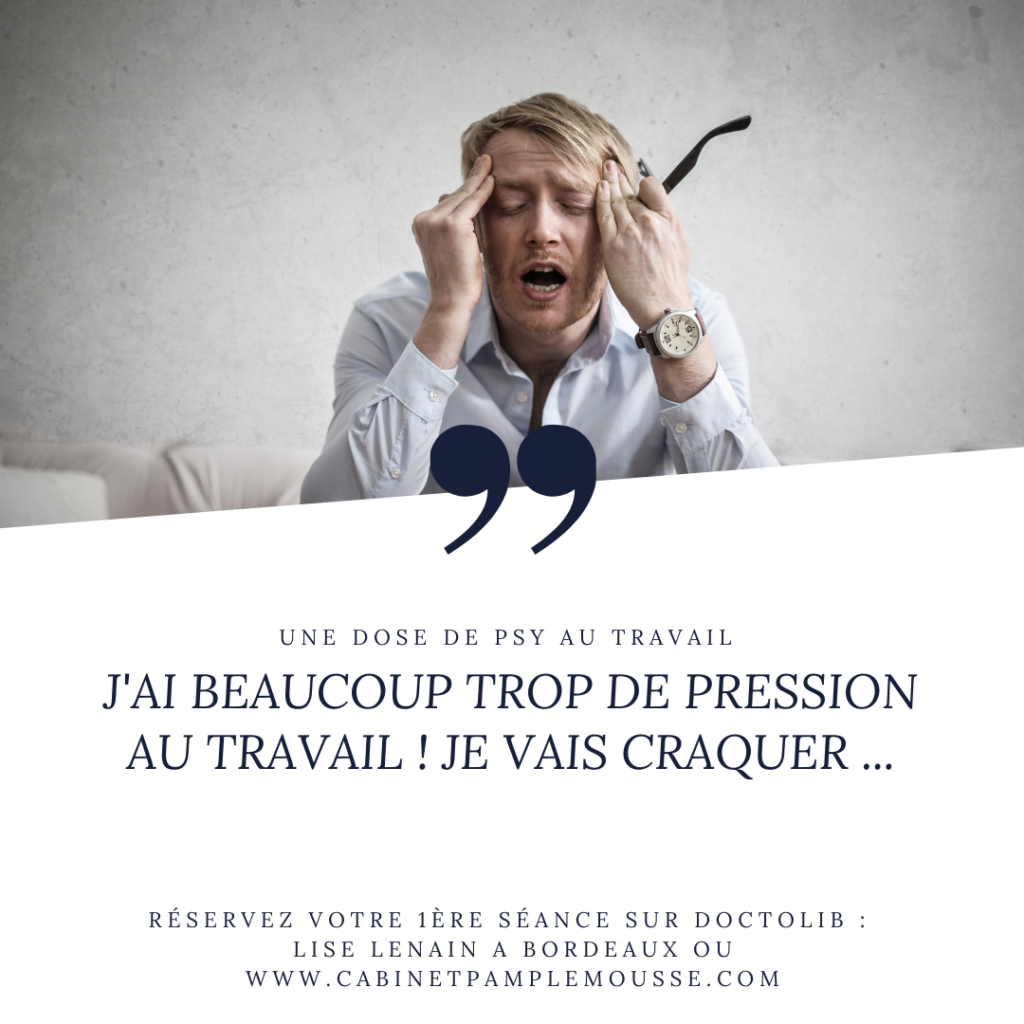
Feat-y: Today, the Coviprev study reveals a significant increase in psychological disorders, direct collateral damage linked to the pandemic. Don’t you think that the problem was not taken in its entirety initially?
In occupational psychology, there are 3 levels of prevention. Primary prevention consists of identifying risk factors before they cause damage. In the current situation, we are clearly in what we call tertiary or post-prevention. We are in firefighter mode, reacting to immediacy. There is a 4th wave in certain LANCET studies, which is a psychological wave. The 1st waves are due to illness and precariousness. What is happening is systemic. But in France, in general, we have a hard time getting involved in prevention, especially on the psychological level. We wait until we can no longer cope with the situation at work. There is this tendency to face up to the situation, to hold on at all costs. In the end, the consequences of this lack of prevention are serious. Physical health is not taken into account in the same way as mental health. For example, for students, there is an alert on their mental health, since they are excluded from all the collective spaces where they can have this micro-regulation, these exchanges which allow them to face the constraints. Constraints are not a problem as long as there are resources in front of them, social links, emotional sharing. And we are all deprived of this in this period. We need to change our logic and adopt a primary prevention approach, i.e. anticipate. We know that certain types of population are more exposed, so it would be wise to set up systems to take care of them early.
Feat-y: What do you think are the solutions to contain the psychological distress related to the current situation? Especially since measures to the contrary have been taken
Conflicting messages have a direct impact on trust. Contradictory messages and paradoxical injunctions lead to misunderstanding. One does not know what to refer to anymore. Even among scientists, they do not always agree, combined with a political discourse where there is a lack of information. This is understandable because they don’t necessarily know what to do, hidden by false assertions used to camouflage shortcomings. There is this uncertainty that must be accepted. And be transparent in saying, “Yes, we are piloting based on the indicators we have on a day-to-day basis and we can’t do better. “At the individual level, we have very little control over what happens. We are surrounded by uncertainty. And it can create disengagement if too many rules are added and they are no longer followed.
Feat-y: The social link created at work has decreased since 1 year, you have set up a covid device, what do you propose through it?
I have 2 specific devices in place. One device is a reverse listening cell. Normally, in the classic listening cells, it is the people who wish to call, who call. So in general, it is not the people at the bottom of the abyss who call. You need resources to be able to call. As far as the reverse listening cell is concerned, I make a contract with the organization that has identified that there is a need. So the organization has a call pack and I call all the staff. This allows us to keep a link, especially in telecommuting, but a link that is different from the one that the manager and the colleagues may have. This makes it possible to have an organizational point of view, to identify points of resources and points of weaknesses. And we address the whole staff. Not only to people who express a malaise and who are therefore able to express it because there are also those who cannot

Feat-y: What do you think is the long-term impact of the pandemic?
Psychological health is very strongly impacted by successive crises.There was an impact by the yellow vest crisis, closures, then the impact of the health crisis. There are repercussions on all strata of society. There are professions where the workload has increased considerably and others where on the contrary there is a total disappearance of activity as for example in the hotel industry. So there are very degraded states, dark thoughts. Many people are weakened. There is no complete study yet. But it would be interesting to have precise figures.
Feat-y: Precisely, there is very little talk in the media about these impacts at the moment, in your opinion why?
In fact, it is a revelation of organizational fragility that already existed before the crisis, due to this piling up of successive changes, this overabundance of information that must be processed. For many organizations, sending an email is equivalent to passing on information. And we have a major problem of communication management at the company level. The problem is that grouping times have already been limited before covid. This deprives us of an essential resource: being able to share with colleagues what it means to do a good job. The increase in workload and the acceleration of work means that this time is less and less available. We put them on break times. Add to that the crisis of the covid with telework and social distancing, and there is a complete disappearance of these exchanges. We need to reintroduce these spaces of exchange. Being able to discuss issues with colleagues, even if it’s only during the coffee break, helps to detach oneself from the traumatic nature of the situation. From the moment there is a deprivation of these collective points, the pathologies are inevitably reinforced. One finds oneself alone with one’s problems.
Feat-y: You do sessions while walking around, it’s quite surprising and innovative, right?
A New York psychologist, Clay Cockrell, used to do this in Central Park, for his clients who were in a hurry. I think that we need movement, we need to create a positive imbalance in order to advance in our thinking. The walking interview favors this. It allows us to avoid being locked into our usual logic. While walking, we have associations of ideas that do not necessarily come to us while remaining static. Walking allows you to increase your energy reservoir and your capacity by coming into contact with others. It’s a way of looking at the problem from a different angle. And I must say that it works very well as a concept.
Feat-y: A favorite music to relax to?
Wonderful word by Louis Armstrong , Perfect Day by Lou Reed or I’m feeling good by Muse
Interview Atld
Infos:
